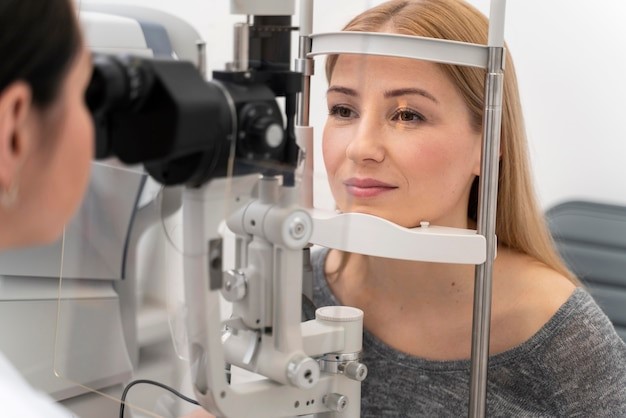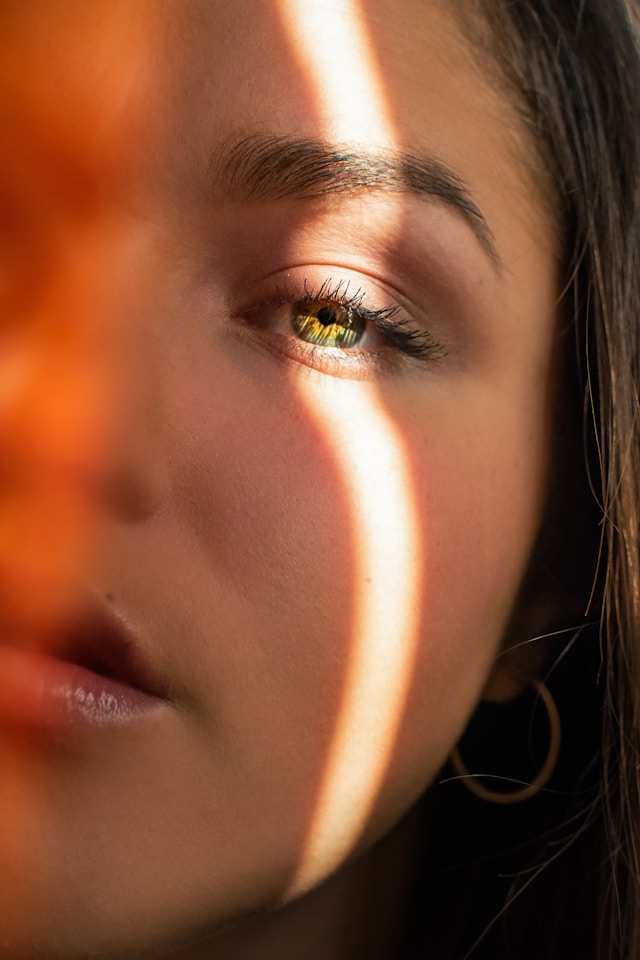Women are More at Risk of Eye Issues: What You Can Do
 Women are at a higher risk of developing eye issues than men. Of the 1.1 billion people with vision loss, 55% are female and are 12% more likely to experience losing their vision than males. They are also 8% more likely to be blind and 15% more likely to have moderate to severe vision impairment. It's the same case for all categories of vision impairment and blindness—women are always more likely to feel the brunt of these issues. The reasons for these inequalities and disparities are also complex and varied but largely unexplored, further affecting women's eye care.
Women are at a higher risk of developing eye issues than men. Of the 1.1 billion people with vision loss, 55% are female and are 12% more likely to experience losing their vision than males. They are also 8% more likely to be blind and 15% more likely to have moderate to severe vision impairment. It's the same case for all categories of vision impairment and blindness—women are always more likely to feel the brunt of these issues. The reasons for these inequalities and disparities are also complex and varied but largely unexplored, further affecting women's eye care.
If you want to start caring for your vision to avoid eye issues and vision loss, here's what you need to know and what you can do:
Why Are Women More Affected By Eye Issues?
Women have a longer average life expectancy than men, but many eye conditions tend to develop with age. Issues like cataracts, presbyopia (far-sightedness), glaucoma, and age-related macular degeneration are linked to increasing age. Because women typically live longer, they're more likely to experience vision loss in their older age.
Beyond age, social and economic factors also influence vision impairment in women. Women may be less likely to access or seek eye care due to insufficient financial resources or awareness. Systemic inequalities also impact women's eye care, leaving them at a more significant disadvantage compared to men. Gaps in research data, insufficient provider and patient education, and limitations in screening and treatment options hamper women's eye care. Sex and gender disparities are largely unaddressed, which is burdensome on quality of life and accessible health care options for women.
Vision impairment in women is a complex issue that stems beyond the individual. It's deeply rooted in systems and societal expectations that discriminate and dismiss women's concerns. Addressing vision loss in women requires a lot of work and a lot of changes, but fortunately, there are still measures you can take to practice eye care to prevent or delay vision issues. Here's what you can do:
 How Women Can Practice Eye Care
How Women Can Practice Eye Care
Wear the right eyewear
Eyeglasses are crucial for vision correction, and wearing ones with the correct prescription can help you see clearer and more comfortably; you won't need to worry about eye strain or headaches from straining to see. You can also find eyeglasses from top brands online, which promise durability, quality, and style. Ray-Ban offers a wide selection of prescription glasses, boasting their innovative and iconic designs. The Erika Optics and Round Metal Optics provide a classic and timeless look while offering visual clarity and comfort. Sunglasses are also crucial for sun protection, as prolonged UV exposure is linked to conditions like age-related macular degeneration and cataracts. Shades 100% UVA and UVB protection can keep the sun's rays at bay all year round. Wearing prescription sunglasses can help if you need vision correction, so you don't need to switch between eyewear.
Use the right tools
Proper eye care or assistive tools can help you address some vision problems and find relief and comfort. For instance, issues like dry eye are common ones for women, and they can be bothersome to deal with in your daily life. Eye drops can help lubricate the eyes if you experience dryness. The lubricating eye drops from iVIZIA can address symptoms and offer preservative-free extended relief and ocular surface protection for dry eye and other eye issues. Other tools, like assistive ones for low vision, can help you avoid straining your eyes and help you see better. Magnifiers enlarge text for easy reading of print materials, and binoculars can help you see things far away.
Eat a healthy diet
Your diet plays a vital role in eye care by providing essential nutrients that keep your eyes functioning at their best. Dark leafy green vegetables contain lutein and zeaxanthin, which are antioxidants that keep your retinas healthy. Carrots provide beta-carotene to boost vitamin A production; insufficient vitamin A can lead to poor vision health and vision loss. You can also get omega-3 fatty acid from fish like salmon and sardines, which promote healthy retinas and prevents dry eye. A healthy diet not only boosts your eye health but also enhances your overall well-being. It can help prevent and manage chronic illnesses and improve your quality of life. Better overall wellness can also contribute to greater eye health in turn. Issues like diabetes can cause diabetic retinopathy, but a nutritious diet can prevent the development of these issues by lowering your risk of developing the condition.
Author bio: Rhea Jane is proud of both her roles as a mom and a small business owner. She is a strong advocate for self-care and sustainability, which she puts into practice through both her parenting style and business leadership.






